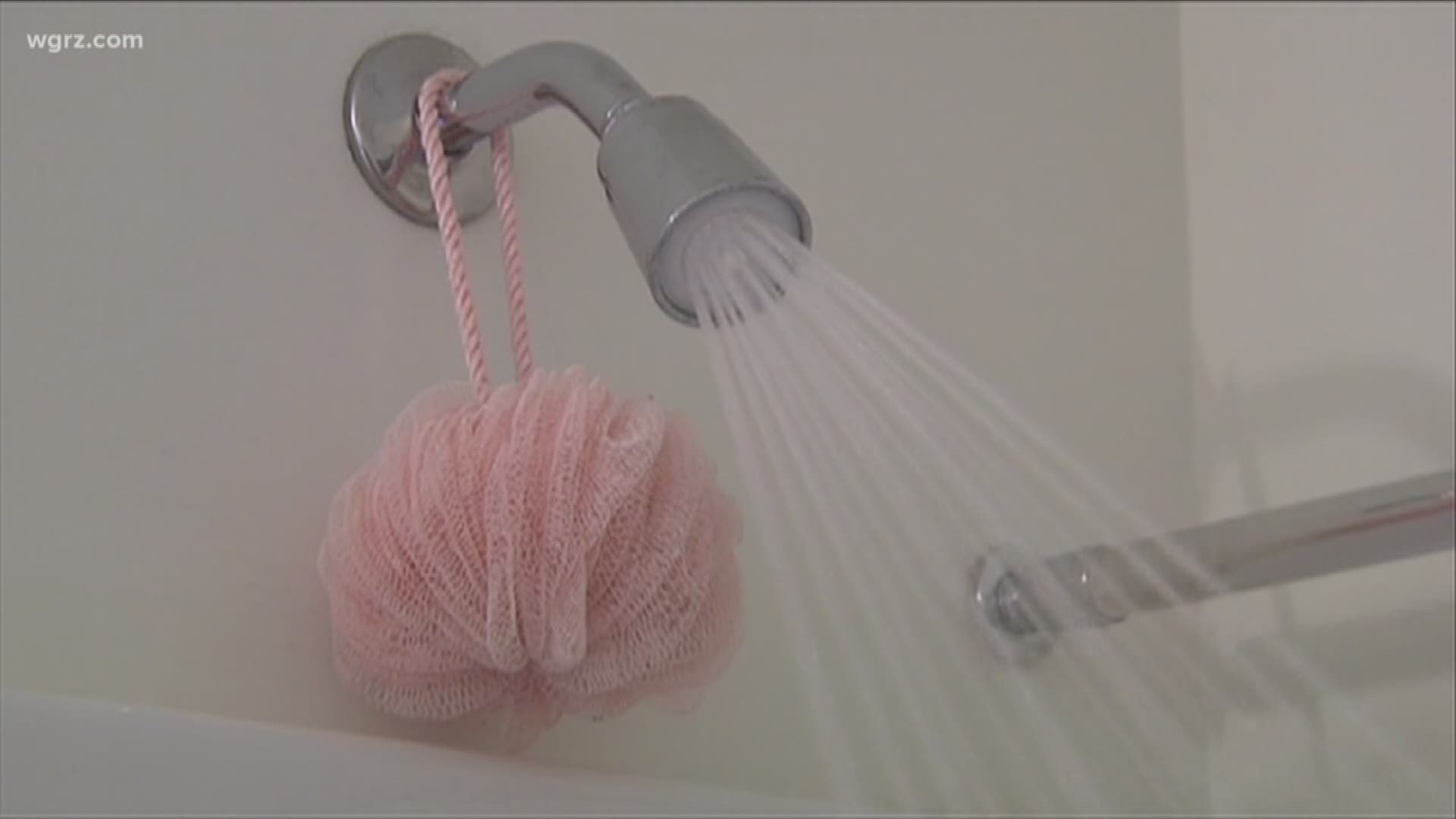BUFFALO, N.Y. — Dry. Cracked. Scaly. Even ashy.
There are plenty of ways to describe your skin this time of year, and several tips you should follow to combat the dryness.
Dr. Lori Ullman is the chair of the Department of Dermatology at the Jacobs School of Medicine and Biomedical Sciences. She said you don't want to bathe or shower excessively in the winter because that can strip the skin of its natural oils and dry you out. She also said skip hot showers and opt for lukewarm water instead.
Ullman tells her patients to avoid bathing all over in the winter. Instead, she recommends a good scrub under your arms and below the belt daily and an all-over wash once a week.
"The benefits of not using soap all over your body far outweigh the benefits of stripping the natural oils off the skin," said Ullman.
Skip the scrub brushes, loofahs, and washcloths advises Ullman.
"They tend to irritate the skin, and although you remove that layer which looks like it's flaking off, what you've done is cause irritation to the layers below. Those cells become inflamed and they will become flaky, so you'll get yourself into a vicious cycle," said Ullman.
She said pat yourself dry instead of rubbing because that can aggravate your skin, and moisturize when you step out of the shower.
Less is more when it comes to lotions and other moisturizing products too.
Ullman said heavily perfumed or deodorant soaps can be pretty drying. Also, look for products that have fewer ingredients. Those tend to be better for your skin, according to Ullman.
She said creams are usually better than lotions, and liquid products — despite their consistency — are usually less moisturizing.
"By liquefying them, you actually remove some of the ingredients that moisturize the skin," said Ullman. "That's why I recommend a bar soap, fatty soap. Stay away from shower gels and so forth because those are actually drying."
So which products are best to restore moisture and get rid of that dry skin?
Ullman said to look for the following ingredients:
- ammonium lactate or lactic acid
- glycolic acid
- aqua glycolic
- alpha hydroxy
- dimethicone
- petrolatum
- mineral oil
"Alpha hydroxy products actually penetrate the skin and stimulate the synthesis of a cementing substance called glycosaminoglycan which plumps up the cells and helps skin maintain its hydration and prevents any leakage of moisture," said Ullman.
If you get severe cracks in the skin, especially on your hands, Ullman recommends applying a hydrocortisone cream followed by a thick moisturizer. Then cover your hands with a pair of cotton gloves before you go to sleep.
She also suggests running a humidifier when you go to bed to add extra moisture to the air.

